access points for artists seeking to engage with Buddies
a hypothetical [yet practical] FAQ from conversations
between Buddies Curatorial Team, ted witzel + Erum Khan,
Creatively composed + edited by Susanna Fournier
Buddies has different programs and pathways for artists. These programs are ways in which Buddies develops and maintains different kinds of relationships. The biggest way to move towards your work happening at Buddies is by building a meaningful relationship with us.*
*[But like any relationship, one place or person or thing cannot be everything for you].
Something we should probably mention off the top [to save folks from scrolling] is that our primary relationship with the broadest of Buddies audiences is through our mainstage season. Given this, it’s rare for an artist’s first relationship with Buddies to be through a production in our mainstage season because we have to get to know how you work first.
ARTIST: Ok. I’m an emerging artist & Buddies doesn’t know me or my work. How can I introduce myself & START a relationship with Buddies?
First off we’d recommend familiarizing yourself with Buddies values, how they inform our curatorial criteria, and how we plan a season because these are the frameworks in which we’ll read your pitch / application / work.
Then ask yourself some questions:
[Like ones we’ll be asking of your work].
- How does your work engage with the world/vision we’re trying to build?
- How are you pitching yourself/your project in a way that’s in line with the rigour of work experienced at Buddies? [Which is part of developing a narrative of artistic self and defining your practice].
- Why Buddies? [Are you mass emailing all performance institutions with your project? We feel engaging deeply and specifically with fewer institutions is better than engaging broadly].
After you’ve engaged with these questions [and this is rigour], check out the different programs and opportunities available to emerging or new-to-Buddies artists:
[Should we just list all the ways?][I think so].
- Ontario Arts Council Recommender Grants for Theatre Creators – Reading these applications gives us glimpses into who you are and something you’re working on. Whether or not you get the grant [it’s such a limited pool], the applications are some of the best ways for us to meet artists new to Buddies and understand the artistic worlds you’re coming from.
- Open Calls / Queer Emerging Artist Award – Occasionally Buddies will put out an open call to artists for custom projects or award opportunities. This is another pathway to introduce yourself & work to Buddies.
- The Rhubarb Festival – These applications let us engage with a project you really want to experiment with & get on its feet. Rhubarb Artists are in conversation with a broader curatorial team at Buddies as well as a cohort of our audience. Rhubarb also gives us a chance to participate in artists’ production processes.
- Emerging Creators Unit – The Emerging Creators Unit is an artist-driven, mentor-supported creative model offering an intensive opportunity to develop your artistic practice and producing skills.
ARTIST: K. Let’s say I do all / some of the above—now what?
Or, what if I’m not an emerging artist and have a body of work already… How can I develop my relationship with Buddies?
- Buddies Residency Program – Through this program, Buddies commissions and develops new queer work for the stage. Centring artists whose work exemplifies Buddies values, we work with writers, theatre collectives, directors, performance artists, and choreographers to create opportunities for them to explore new work and creative processes.
- Invite us to your production / presentation – There’s a form on our website where you can send a thoughtful invitation offering context for how your work engages with how queerness is being understood at Buddies [even a provocation to challenge the way we’re thinking about queerness is exciting]. While we can’t promise attendance to everyone’s shows [we are a very small team & there are laws of physics]* we attend Summerworks / Greenhouse / Next Stage / festivals to develop new relationships with artists.
*[Honestly, so often what might look like ‘gatekeeping’ is really just the scarcity of time and human resources in this sector. I’m sure people will find it hard to get our attention every now and then because there are so many directions our attention can and must go in].
ARTIST: K. But what about that mainstage production I REALLY WANT, how do I get that?
Works we’re considering for the mainstage enter our season planning process. Whether these are projects Buddies has played a part in developing [residency artists], finished works we’re bringing in from another geographic location, or new works created by artists Buddies has a relationship with — they’ll all somehow embody & dance with the values of liberation, audacity, and artistic rigour [formally, aesthetically, stylistically].
ARTIST: How did you two start your relationships with Buddies?
ERUM: I came through the Emerging Creators Unit [ECU]. That was, for me, the theatre school version of queer, folk art, writing, multidisciplinary explosions I needed. Through ECU, Rhubarb, and Pride I met so many people.
ted: You also won the Queer Emerging Artist Award.
ERUM: That too. But even then, I didn’t think, ok, now I’ve got a clear path or one day I’ll be voice memo-ing how we curate at Buddies as an artistic leader… I think there’s something about like, the loneliness of queers. That’s so desperate for attachment or validation or something, that there’s a lot of expectation put on Buddies to be this fulfilling prophecy answer. But Buddies is just made up of the same complexities. I know some people get angry / sad / hurt because they’re like Oh, I thought Buddies would be my home, but it didn’t work out that way. I never thought Buddies was gonna be my artistic home, yet here I am.
ted: For me, coming here as an emerging artist, I always felt like I wasn’t like queer enough or radical enough to be in this space. The ideas I met here pushed me. They were occupying a zone of queerness that was beyond my lived experience [at that time]. Then I came into residency for four years with LULU. When you have the chance to create in a space centered on taking risks, you have to take risks [not just in your work, but in your selfhood]. And that changes you — how you work with collaborators, how you meet an audience through a work. Being in residency radicalized my artistic practice and in doing so, radicalized me.
I think for some of our audience, they aren’t living a radical reality every day. [I don’t know what it means to live radically every day. I grow tomatoes. I have eight hybrids in my basement. They’re doing really well]. But I know some folks come here for that jolt of radicalism in their lives through a work or experience that’s exploring a new edge or provocation. We’re cultivating both audiences and artists seeking to experience how change and radicality move through their bodies, hearts, and minds. So that’s also something we’re going to ask any artist we’re in relationship with, how does your work ignite that?
Related posts
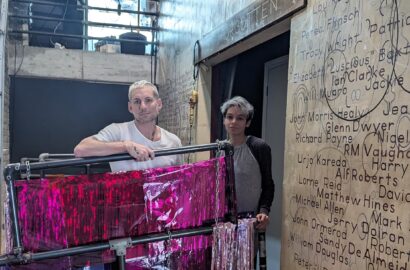
a curatorial confession in 874 words
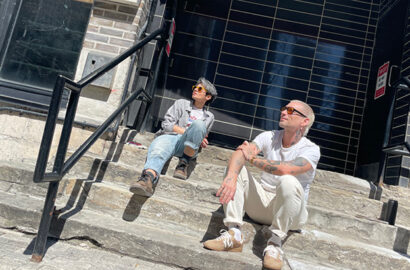
A SPACE THAT HOLDS IMPOSSIBLE ASKS [BUDDIES’ REVAMPED VALUES]
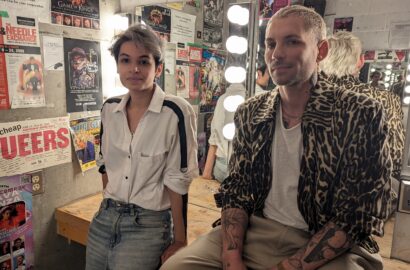

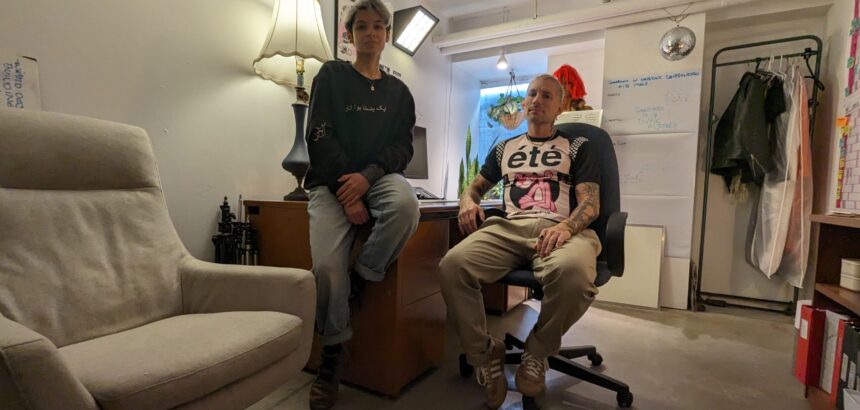
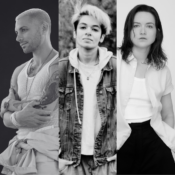
Hi, I came to BBT yesterday and asked around who could be a good contact person for my friend Julie Slowinski, a Mtf crossdresser and volunteer producer at Newport Theater in Chicago, who is interested in acting in a cabaret or burlesque show. She has played host, has developed two skits of her own and she’s working on more. She performed in Chicago, where she lives, quite a few times and is now ready to be booked elsewhere. I’m trying to help her come to Canada.
At the bar, they told me to look on the website and that Kathryn (spelling?) would be the go to person, but here I see different names so now I’m confused.
Could you please let me know with whom can Julie talk, if anyone?
Thanks. Best. Claudia